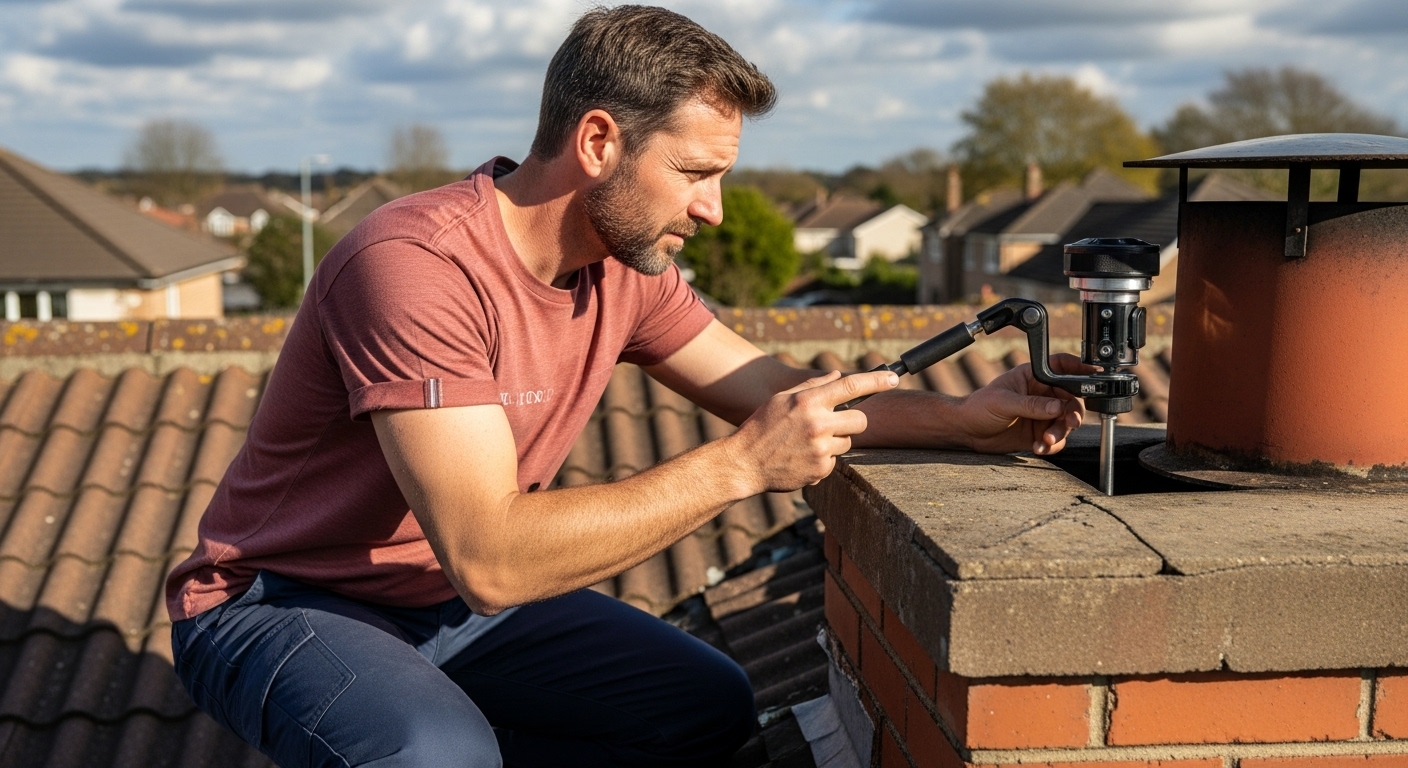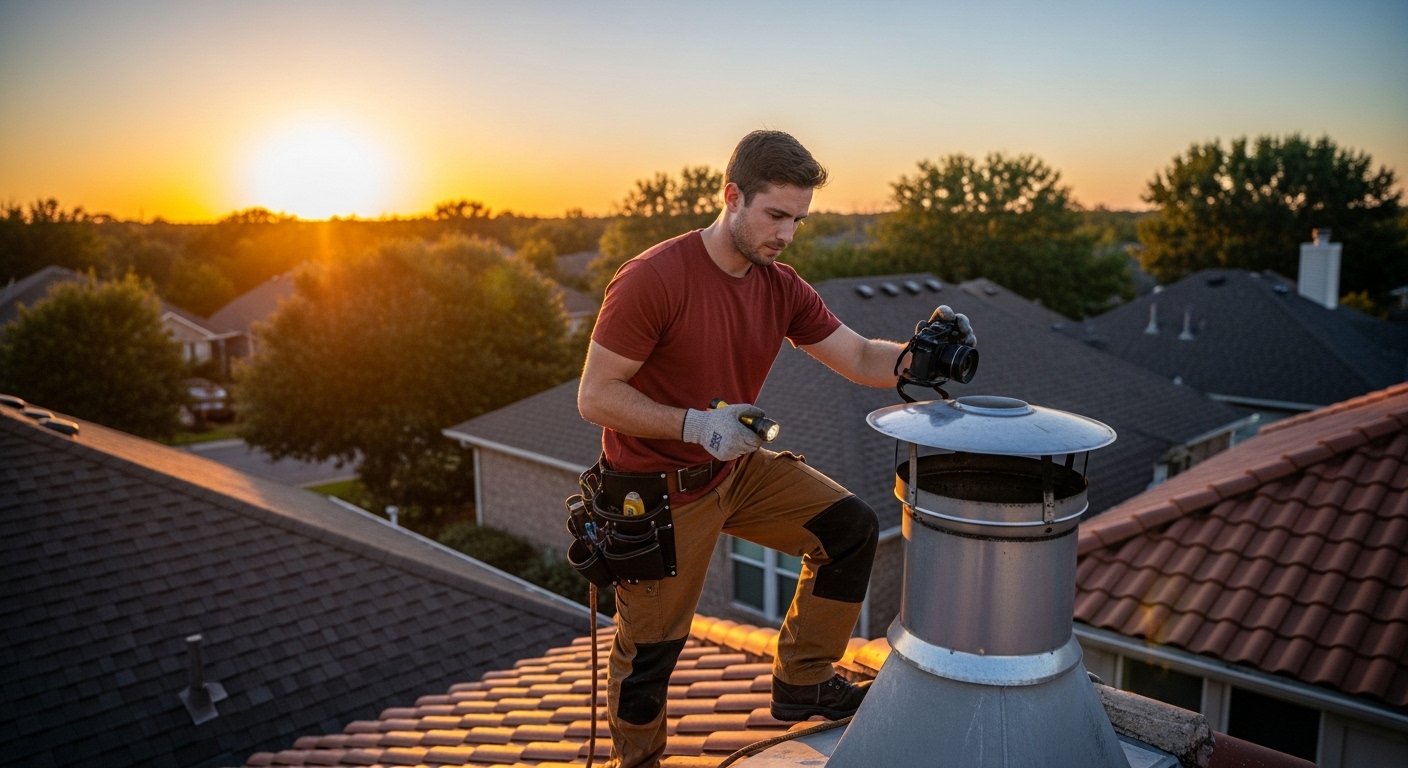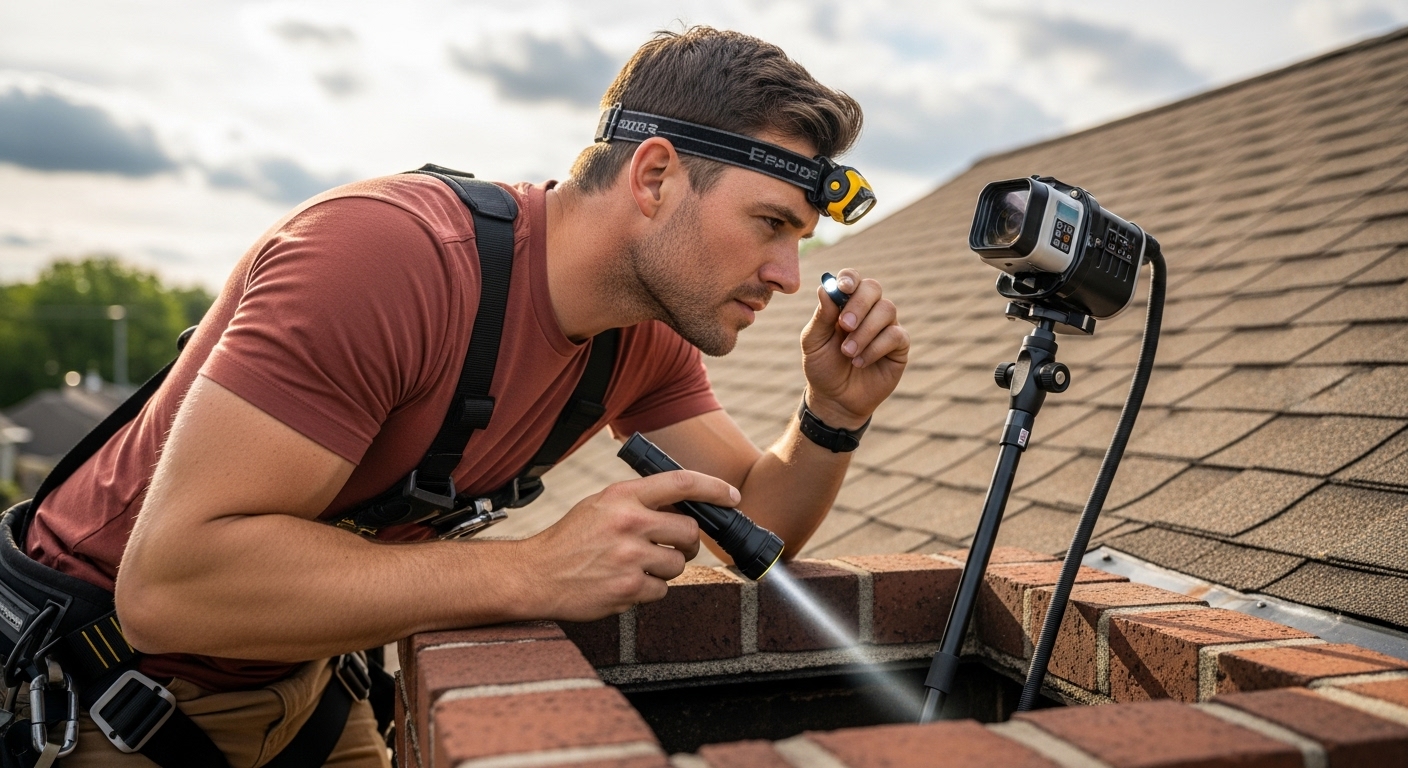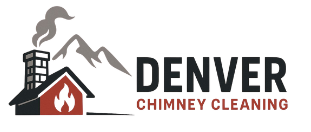Chimney Inspection
Chimney Inspection
Why Do You Need a Certified Chimney Inspection?
A inspection is essential for homeowners who use their fireplaces regularly or haven’t had their chimney cleaned in a while. Below are some of the main reasons why regular inspections are crucial for your home:
Safety First: Over time, creosote and soot can build up in your chimney, increasing the risk of a dangerous chimney fire. A professional inspection helps identify any creosote buildup and other potential fire hazards.
Prevent Carbon Monoxide Poisoning: Blockages, cracks, and poor airflow can cause dangerous gases, like carbon monoxide, to seep back into your home. Inspections help ensure proper ventilation and that harmful gases are safely vented outside.
Early Detection of Issues: A inspection allows us to detect problems early, such as cracked flue tiles, deteriorating mortar, or a damaged chimney cap. Addressing these issues early on can prevent expensive repairs and ensure the longevity of your chimney.
Regulatory Compliance: In many regions, local codes require regular chimney inspections to ensure the chimney is up to code and safe to use. Our inspections meet all industry standards and local regulations.
The Different Levels of Chimney Inspections
At Denver Chimney Cleaning, we follow a detailed inspection process to ensure every component of your chimney is thoroughly checked for safety and efficiency. Here’s what you can expect from our professional chimney inspection service:

level-one chimney
This is the most basic type of inspection and is typically recommended for chimneys that are in good condition and are used regularly. A Level 1 inspection involves a visual inspection of the readily accessible parts of the chimney.

level-two chimney
This inspection is required when changes are made to your chimney system (such as installing a new stove or replacing the liner), or when a problem is suspected. It involves a more detailed visual inspection of both the interior and exterior, with the potential for video scans.

level-three chimney
The most thorough inspection, a Level 3 is typically performed when there is evidence of a serious problem, such as a chimney fire or suspected hidden damage. It may involve removing parts of the chimney system for a closer examination.
Signs You Need a Chimney Inspection
- You haven’t had your chimney inspected in over a year.
You notice an unpleasant smell from your fireplace.
Your fireplace or stove is not functioning properly.
You see visible cracks or damage on the exterior of your chimney.
You hear strange noises coming from your chimney (e.g., bird nests, debris, or animals).
Ensuring your chimney is safe and functioning properly is crucial for the safety of your home and family. Don’t wait for a problem to arise—schedule a certified chimney for inspections chimney today with Denver Chimney Cleaning!
Find Denver Chimney Inspections on Google Maps
Customer Reviews
Frequently Asked Questions (FAQs)
1. How often should I have my chimney inspected?
We recommend having your chimney inspected at least once a year, preferably before the heating season begins. If you use your fireplace frequently or have noticed issues with your chimney, more frequent inspections may be necessary.
2. What is included in a chimney inspection?
A comprehensive chimney inspection includes checking both the interior and exterior of your chimney for damage, creosote buildup, and blockages. We also inspect the fireplace, hearth, and ventilation system. Depending on the level of inspection, we may use video equipment to assess hard-to-reach areas.
3. What are the different levels of chimney inspections?
There are three levels of chimney inspections:
Level 1: Basic visual inspection of the chimney’s accessible parts.
Level 2: More detailed inspection, often required after changes to your chimney or when there’s suspected damage.
Level 3: A thorough inspection that may involve removing parts of the chimney system to examine hidden damage or hazards.
4. How do I know if my chimney needs an inspection?
It’s recommended to get an inspection if:
You haven’t had one in over a year.
You notice a smoky odor when the fireplace is in use.
The fireplace or stove isn’t working as efficiently.
You see cracks, rust, or damage on the exterior of the chimney.
There’s excessive soot or creosote buildup in the chimney.
5. Can I inspect my chimney myself?
While you can perform a basic visual check, it’s always best to hire a professional chimney inspector. Professionals have the training and equipment to safely and thoroughly assess your chimney for issues like creosote buildup, blockages, and structural damage that are difficult to spot without specialized tools.
6. Why is creosote buildup dangerous?
Creosote is a flammable substance that forms when wood burns. If too much creosote accumulates in your chimney, it can lead to a dangerous chimney fire. Regular chimney inspections and cleanings help prevent dangerous creosote buildup.
7. Will you be able to clean my chimney during the inspection?
Yes! If our inspection reveals creosote buildup or other debris in your chimney, we can clean it on the spot. Our team is fully equipped to handle both inspections and cleanings during the same visit for your convenience.
8. How long does a chimney inspection take?
The length of the inspection depends on the size and condition of your chimney. Typically, a standard Level 1 inspection takes about 30 to 60 minutes. Level 2 or Level 3 inspections may take longer due to their more detailed nature.

